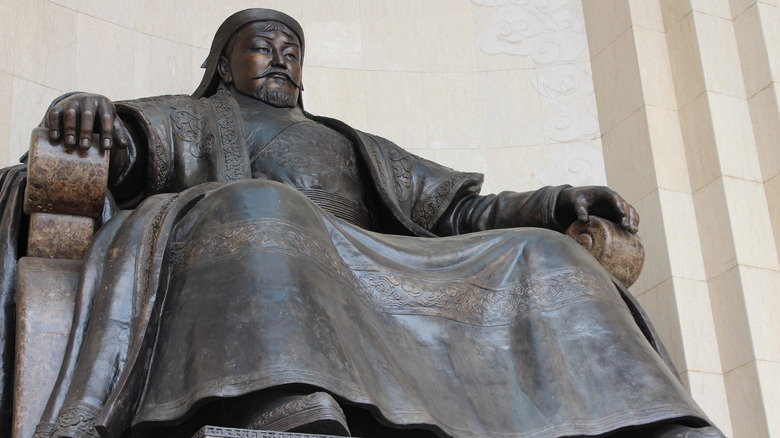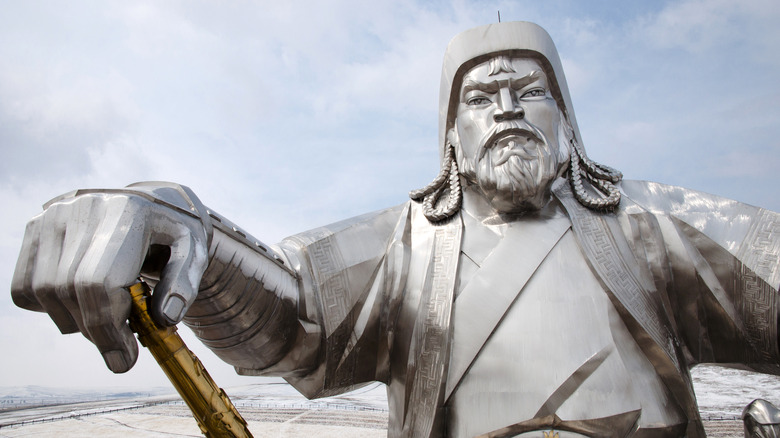How Genghis Khan Felt About Religion
Genghis Khan is regarded as one of the most successful — and ruthless leaders — in human history. According to History, many historians believe that as many as 40 million people were killed during the Mongol quests, a figure that means the Mongols may have reduced the world's population by 11%.
In 1206, the "Great Khan" founded the Mongol Empire, and by the late 13th century, it stretched from the Pacific Ocean in the east all the way to the Danube River and the Persian Gulf in the west, making it the largest contiguous land empire in world history (via Britannica).
Given the reputation Genghis Khan attained over the years, his views on religion may come as a surprise. The Mongol Empire grew so large that it encompassed a wide diversity of religions, including Nestorian Christians, Buddhists, Muslims, and followers of animistic traditions. Khan embraced diversity in the territories that he conquered, even going so far as to offer tax exemptions for places of worship.
While he appears to have had a legitimate interest in spirituality, there was also a political motivation for offering this level of religious freedom: He was well aware that happy subjects were less likely to mount a rebellion against his empire (via History).
Genghis Khan's personal interest in spirituality
The Mongol people were practitioners of Tengerism, a shamanistic belief system centered on honoring spirits (via History on the Net). Shamanism is a form of animism, which is the belief that everything — rocks, trees, mountains, the sky — has a spiritual essence.
Genghis Khan himself was known to have been heavily interested in spirituality, and would even spend days on end in his tent praying before campaigns. He would also meet with religious leaders of other faiths to discuss the details of their respective religions (via History).
At one point, the Great Khan invited the Taoist leader, Qiu Chuji, to his camp. Taoism (sometimes written as Daoism) is a philosophy that began in ancient China and teaches followers how to exist in harmony with the universe (via National Geographic). Supposedly, the two men would hold long conversations covering topics like immortality and philosophy. This welcoming attitude toward other religions would run through Genghis Khan's family, as his sons would marry Nestorian Christian women (via History on the Net).

